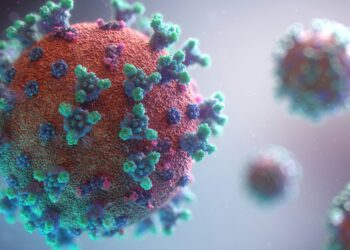Have you ever heard of a baby passing away during sleep? Very sudden, scary, and devastating thing to think of or even experience, especially as a new parent. This unforeseen death which happens to a healthy baby under a year is what is referred to as sudden infant death syndrome, or SIDS. SIDS is one of the main reasons for infant deaths around the world.
In the data and statistics report recorded by the Centers for Disease Control and Prevention, it shows that in 2020 alone, for every 100,000 babies born alive, about 38.4 of them died from Sudden Infant Death Syndrome (SIDS).
Approximately, that totals 1,389 infant deaths caused by SIDS that year. The big question is why does this happen? Although doctors still aren’t sure exactly why it happens, we are going to look at some possible reasons for SIDS.

Impact of Sudden Infant Death Syndrome (SIDS)
No parent expects to lose their child so this suddenness replaces the joy of parenthood with heartbreak and helplessness. The thing about the sudden death of a child is not always about the grief, there’s also a feeling of confusion and guilt. The parent may catch themselves zoning out, thinking about what they should have done differently to prevent this tragic event from occurring.
The emotional toll that comes with SIDS is huge. Many parents experience this struggle with depression, anxiety, and even PTSD after losing a child. The pain makes it hard to move forward, and this may affect their relationships with people and sometimes their children, as people tend to cope with loss and grief differently. In addition, SIDS not only causes pain for the family but also causes fear and worry among other parents in the neighborhood.
Possible Causes of Sudden Infant Death Syndrome (SIDS)
The possible causes of SIDS can be divided into different categories: sleeping environment, infant factors, and parental factors.
Sleeping Environment
In a sleeping environment, a couple of things play roles in a sudden infant death. The first thing to consider is soft bedding which includes pillows, blankets, cribs, and bumpers. Having soft bedding like that in a baby’s sleeping area can be risky. These beddings can accidentally cover the baby’s face while they sleep, making it difficult for them to breathe.
While a baby sleeps, they can get too warm probably because their clothes are too heavy, there are too many blankets around, or the room is too hot. This rise in temperature can lead to sudden infant deaths. In another case scenario, babies who are exposed to cigarette smoke during pregnancy or after birth have a higher risk of SIDS, because the smoke can affect how well they breathe. Lastly, sharing a bed with a baby can be dangerous, especially on a soft mattress that can lead to suffocation.
Infant Factors
Some babies are born too early and because of that, they end up having underdeveloped organs like the lungs and other organs that make up their nervous system. This makes the child more prone to SIDS. Not only are some babies born too early, some babies are born smaller than other babies.
Because they have low birth weight, they might have a weaker immune system and less developed organs which puts them at a higher risk. In addition, if a baby has had a scary event where they almost died suddenly known as Near-Miss Sudden Infant Death Syndrome (NMSIDS), they might be at a higher risk for SIDS later on.
Parental Factors
Some families have very low incomes which means that they’d have a higher risk of SIDS due to limited to no access to good healthcare, poor living conditions, and not knowing about safe sleep practices for their babies.
Bottom Line
SIDS, or Sudden Infant Death Syndrome, is a devastating and confusing condition that can take the life of a healthy baby under a year old. Even though doctors aren’t exactly sure why it happens, there are certain factors that put the child at a higher risk; like unsafe sleep setups, certain health issues in babies, and even tough financial situations. The impact on families is huge, leaving them heartbroken and searching for answers.

















